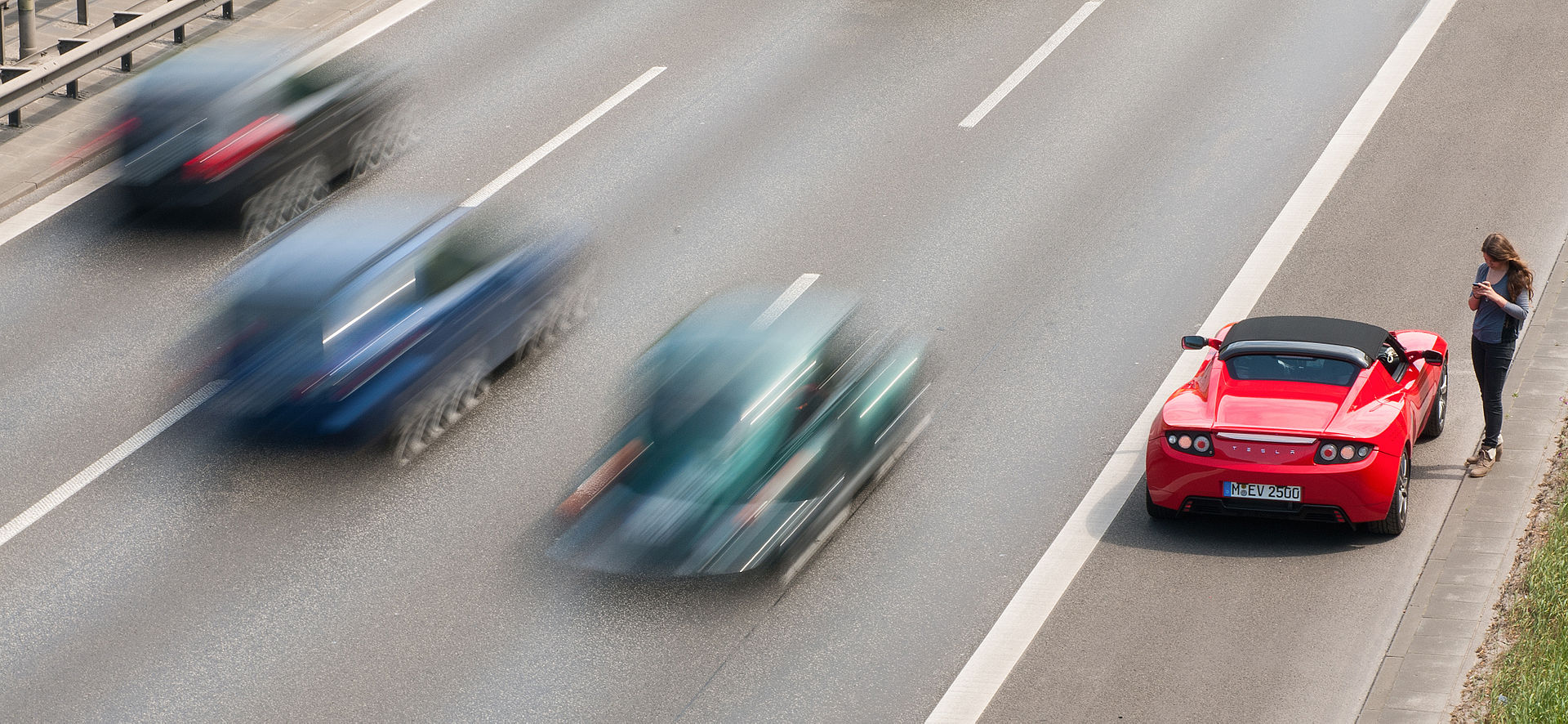In Austria, electric cars will soon be allowed to drive faster on the motorway than other cars. Is this a good idea for The Netherlands as well?
130 km an hour in an electric car? That is not a good idea, says Professor of Transport Policy Bert van Wee. (Photo: Wikimedia Commons)
The speed limit on Dutch motorways will soon be reduced to 100 kilometres per hour. Though there will be exceptions where people will be allowed to drive faster on some parts of the road at night. This measure is intended to reduce nitrogen dioxide emissions.
The same thing is happening in Austria. However, an exception is made there for electric cars. On many routes where petrol and diesel cars have to comply with the 100 kilometres per hour limit, electric cars will be allowed to drive 130 kilometres per hour from 1 January 2020. This rule will apply on 440 kilometres of motorway, or 20% of Austrian motorways. In this way, the Austrian Government hopes to encourage more people to use electric cars.
Should we not also introduce this measure in the Netherlands? “I know the idea. I have heard people talking about this lately. But I do see a number of drawbacks,” says Professor of Transport Policy Bert van Wee (TPM). “Many motorists find this unfair. It’s often the richer people who drive electric vehicles. They bought their car partly at the expense of the state using a beneficial tax scheme. And now they may also be allowed to drive faster than the rest. You can question this politically.”
‘Speed differences on the motorway will lead to more dangerous situations’
Moreover, Van Wee doubts whether it is an effective measure to encourage people to drive electric vehicles. “A study in Norway suggests that the price (i.e. the tax benefits) and the infrastructure of charging stations are by far the most important factors. In Norway, electric cars are also allowed to drive on the bus lane. This also helps. I have my doubts about speed. Electric drivers often choose to drive slowly to increase their range.”
Some drivers however will choose to drive faster. “This will lead to greater speed differences on the motorway and thus to more dangerous situations,” says Van Wee.
In the long run the flow of traffic on the roads may also suffer as a result. “At present, approximately 1.5% of the vehicle fleet is electrically powered. By no means everyone in electric cars will drive at 130. Suppose that 1% of motorists drive at 130 kilometres per hour, this will have little effect on traffic flow, but if the share of electric cars increases, then the measure may indeed reduce the capacity of the road.”
Do you have a question or comment about this article?
tomas.vandijk@tudelft.nl


Comments are closed.